January 5
Water pressure in the house makes showering impossible, so we’re planning to move to a hotel this evening. I probably could have survived without showers, but I draw the line at no wifi. I mean, c’mon. Susie says, “we could have done with this, if we had to, but, if you don’t have to…..” I told Susie that that pretty-much summed up my philosophy of life. I’ve never been one to skirt the moving walkways at airports.
We have breakfast at the house, eggs with a bit of a kick to them, fresh orange juice, toast and sausage, with Nescafé. We’re met at the house by the deputy vice chancellor of the university, EmilOlorun Aiyelari, who we are told we can call Ambrose (we Americans are so bad at making the effort to learn and pronounce foreign names), and taken over to the school, where we meet with 8 professors from all facets of the agriculture school– including forestry, agronomy, fisheries, wildlife, plant breeding and crop production, ecotourism, entomology–and see the work of a woman who is doing new research on cocoa plants. The Kipharts are reasonably knowledgable on some aspects of what we discuss. For Carol and me it is almost entirely a learning process (though each time we are exposed to it, we absorb a bit more). Those we meet with are obviously very experienced and expert in the areas we discuss. Their various different accents require close attention in order to absorb what is said, but the three hours we spend is quite interesting and rewarding. One common theme in all the agricultural areas is that for any work they do to be effective it needs to be built from the bottom up, paying close attention to what the farmer wants and is willing to do.
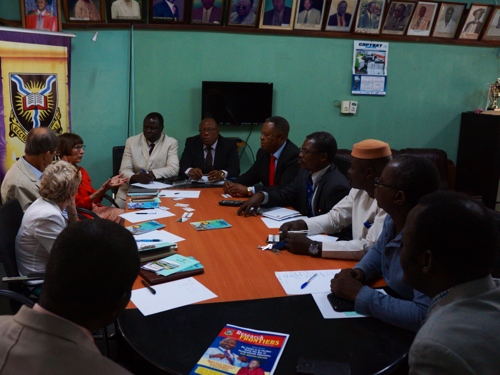
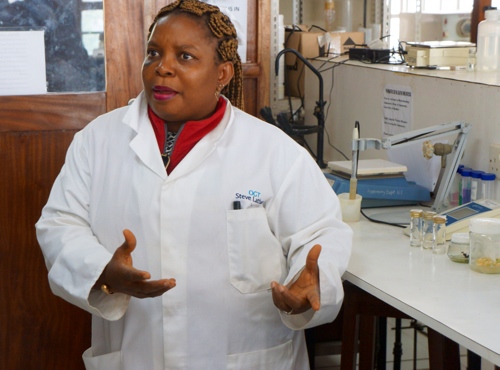
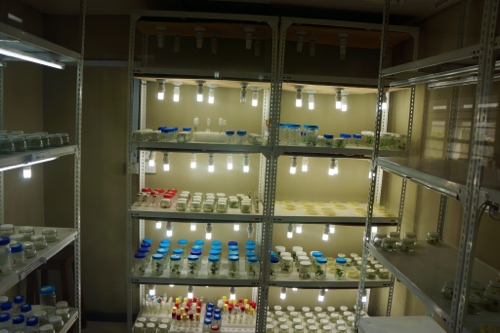
We returned to the house for a very good lunch, and assembled our luggage for transfer to the hotel. Wasted quite a bit of time, first driving to the University, then to the medical school to meet Funmi and finally back to the Unversity for a meeting with the Vice Chancellor, Isaac Adewole, who we had met a year ago August. Isaac is a powerhouse in his last year as Vice Chancellor and talked about what had and had not been accomplished under his tenure, and about an exciting project in solar energy that they plan to do with the government of Germany. Isaac has a clear vision for the university and is very bullish on both the University and Nigeria. He predicts that all of the troubles we read about in the Northeast with Boko Haram will die out within two years. He also thinks that the huge drops in oil prices will ultimately benefit Nigeria by forcing it to diversify and look to agriculture as one of its primary assets.
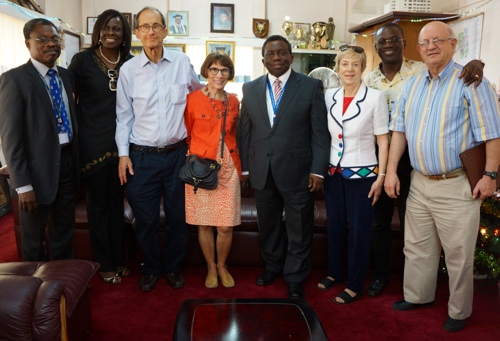
We drive to and check into the very nice, new Owu Crown Hotel, where the protocol officer who has accompanied us all along (“Samuel,” though that’s nothing close to his real name) negotiates a 30% discount because of our affiliation with the University, and we are given a suite. We barely have time to wash up, before we need to set out for dinner, hosted for us and about 25 university professors outside at the home of the Vice Chancellor. Driving there I realize that I’ve become so used to the African urban landscape that I barely notice what has fascinated me on prior trips and what I know first-time visitors would gawk at. I’ve included a few not very good photos, taken as we whizzed through in our van.
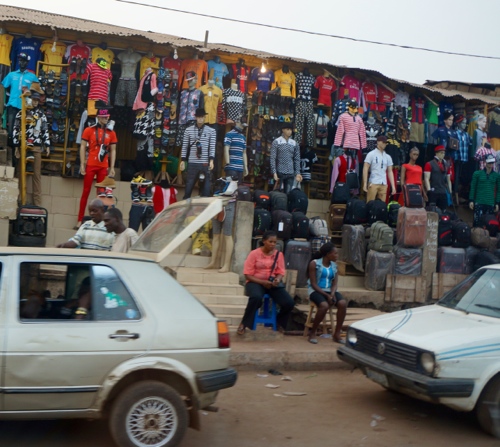
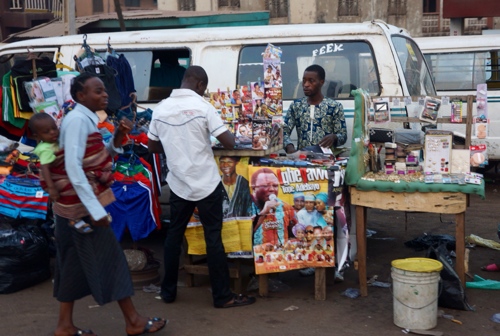
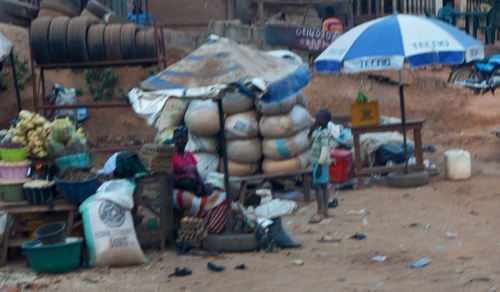
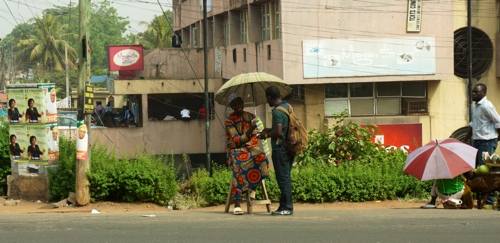
En route to the dinner, Sola tells us details of a fascinating study on indoor pollution that he is in the middle of. I’m going to hold the details until tomorrow, because it will fit better with what we are doing then. The dinner is quite pleasant, though I’d have enjoyed it even more if I had a richer appreciation for the nuances of poultry nutrition, the specialty of the Dean of the Agriculture School, who was seated next to me. We are showered with many gifts by the Vice Chancellor. Clearly, the VC feels that a relationship with the Kipharts is worth the very substantial amount of attention, time and effort that he and his faculty members have spent with us on our two trips. Another reason is undoubtedly the esteem in which two distinguished alumni of the University, Sola and Funmi, are held. Funmi does not attend the dinner, spending the evening instead with her 94-year old mother.
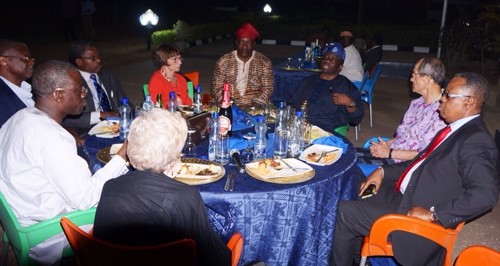
We drive back to the hotel, past night markets lit by kerosene lamps, and retire early.

Showers, showers who needs a shower? We
are having a little interlude ourselves. The
Siberian express has arrived courtesy of the
jet stream. The “real feel” was as low as -45.
Fortunately this year is not the same as last year
as there will be a thaw coming soon this coldest
months of the season.
All fascinating. Love the photos. Totally agree about that needed shower!
Engaging….